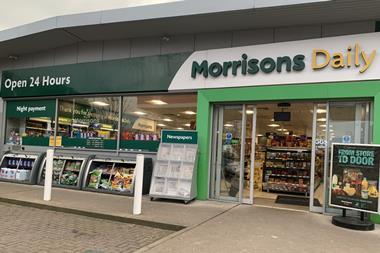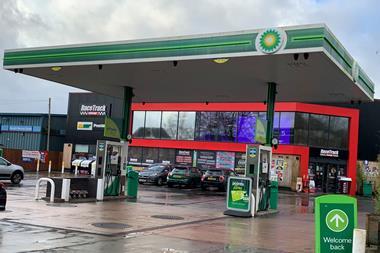BOSS, the British Oil Security Syndicate, has welcomed confirmation from the Crown Prosecution Service (CPS) that it has issued new guidance to lawyers and police forces to prosecute motorists who repeatedly claim to have no-means-of-payment (NMoP).
After lobbying from BOSS, the CPS has issued new legal guidelines to police and prosecutors advising them to bring criminal charges against repeat NMoP offenders.
Manjula Nayee, senior policy advisor in the Strategy and Policy Directorate of the CPS, said: "The new guidance sets out how the CPS will work closely with the police to make sure we gather all the evidence such as CCTV footage, vehicle records and fingerprint evidence, to prosecute those drivers who repeatedly do not return to pay.
"We’re aware, anecdotally, that petrol stations are seeing an increase in the number of drivers filling up with fuel, despite fully intending not to pay for it.
"But these aren’t just cases in which someone fills up the tank and drives off. Instead, drivers are pretending that they have forgotten their wallet or purse and promising to pay at a later date, despite having no intention of ever doing so.
Genuine error
"If an individual has made a genuine error in filling up with fuel without having the means to pay, it is standard industry practice to allow drivers to sign a form to acknowledge their debt and agree to pay it back. But unfortunately there are a number of dishonest individuals who repeatedly abuse this system, signing forms at different petrol stations and never paying what they owe.
"Drivers who think they can repeatedly abuse the system designed to help honest people who make genuine errors should be warned they can and will be tracked down and brought to justice."
BOSS estimates that motorists who claim to have no means of payment for fuel obtained and then fail to return to make payment, costs UK fuel retailers more than £4m each year. Since 2011 it has identified more than 500 cases of serial offending and over 180 of these have resulted in a positive police outcome, with many more at various stages of the prosecution process.
BOSS has also been working closely with Action Fraud as part of the Home Office pilot for direct reporting of crimes into the National Fraud Reporting Centre, which allows further links to other criminality to be identified.
The new CPS guidelines make direct reference to BOSS and its involvement in submitting these cases of multiple NMoP to police for investigation, as its efforts specifically target such crimes.
Kevin Eastwood, executive director at BOSS, said: "We’re absolutely delighted with the news. It’s the biggest policy step change we have seen in years, and to be mentioned in the guidance shows the CPS has recognised the work we’ve put in. For far too long we have seen either inconsistent action by police and CPS or no action at all.
"It’s also a great boost for forecourt retailers as well, as it shows them that their difficulties are going to be dealt with in a far more structured and consistent manner. It’s a help for the police as well, because they know that if we put a case forward to them and they run with it, there’s a good chance they’ll get a prosecution. What we do saves an awful lot of time for the police.
"The new legal guidelines to police and prosecutors, advising them to bring criminal charges against repeat NMoP offenders, will make it quite clear that motorists who dishonestly evade payment will be prosecuted."
BOSS has been working closely with the CPS for more than 18 months preparing the documentation for the guidance. But it had been working for years before that trying to highlight to the many hundreds of Crown Prosecutors around the country, the problem for the police of putting together a strong enough case for them to pursue, and understanding their requirements in order to do so. A breakthrough came in 2010 when the CPS in the Thames & Chiltern area did issue such guidance, which was of great assistance. But an even bigger breakthrough came with a meeting with the Head of Law & Procedure Unit at the CPS, and his colleagues.
"They agreed there was inconsistency and it needed looking at," said Eastwood. "It was their willingness to look at it and take matters further that was really helpful. It’s taken 18 months since then to put the documents together, working closely with the CPS team."
BOSS had established a system that enabled it to provide evidence to demonstrate that there was a significant number of repeat offenders and that positive action was needed to bring them to book and deter others. The scheme, called Payment Watch was trialled for a year in Nottingham in 2009 across 40 garages.
"The success of the ’no means of payment’ trial was quite surprising," said Eastwood. "We found that between 70-75% of people that signed the documents did actually go back to the garage and pay. As a motorist it’s an easy enough and embarrassing situation to find yourself in. It happens to a lot of people wrong coat, wrong handbag, wrong trousers and so on. So to overcome that and have a friendly way of dealing with it brought good results. Before there was no structure, no records and nothing that was consistent throughout the forecourt network. Some retailers had a document to sign, but there was no enforcement afterwards.
"Ours is the only system operating nationally. Of the remaining 25% of cases that are sent off to the debt collector which are, in the main, the difficult ones 50% of the claims are being successfully collected. The system is quite robust. If people don’t pay within seven days, the document/report is sent to the debt collector. Before this scheme, there was no stick."
BOSS is now asking retailers on the scheme to retain an image of the individual concerned, because it could take months before a string of offences by the same individual is identified."
Eastwood said the system has been working for four years and will soon be changing over to an electronic process. Next year membership of Payment Watch will be £180 a year per site, or £12.50 a month if paid by direct debit.
"I’m delighted with the success of the scheme to date. I just wish more retailers would realise the value of it, because the more that join, the fewer hiding places there will be for the people that do it regularly."





























No comments yet